Nowhere Else (A Festival Reflection by BQN)
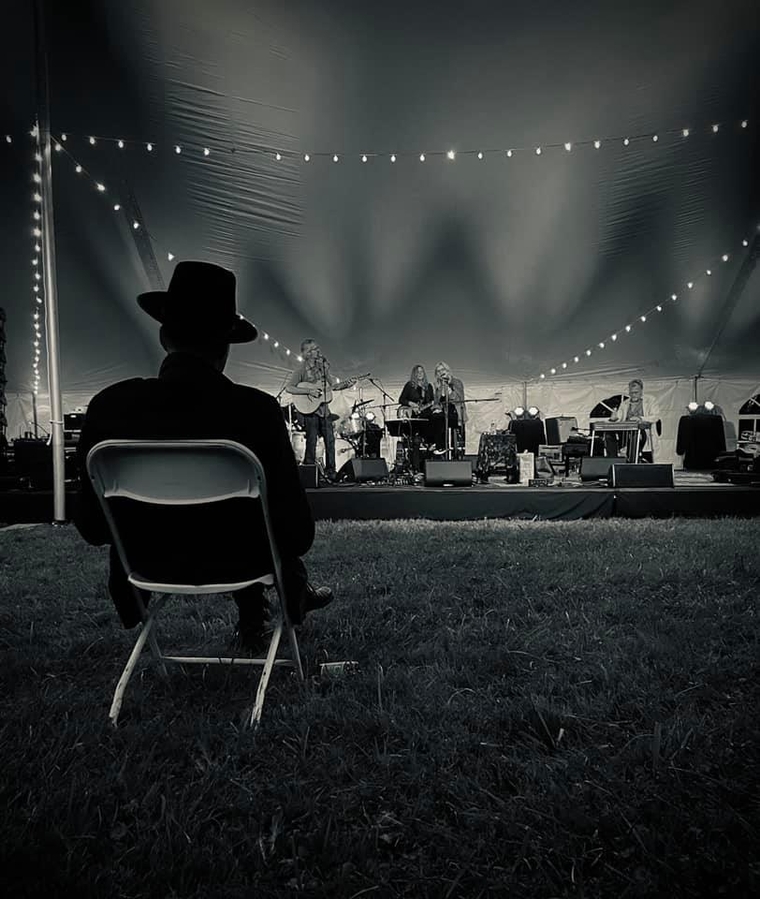
Nowhere Else Festival 2021
Featuring: Over the Rhine and the Band of Sweethearts, Patty Griffin, Mary Gauthier, Joe Henry, Allison Russell, Peter Mulvey, Anna Tivel, Scott Mulvahill, and more
Martinsville, Ohio
September 4 & 5, 2021
A Concert Reflection By Brian Quincy Newcomb
As the fans of the Ohio band Over the Rhine gathered for the 5th annual family reunion that goes by the name of the Nowhere Else Festival, there were constant reminders that we are living through a time of great vulnerability and uncertainty. With COVID-19 protocols in place – proof of vaccination required, masking when indoors – the tribes came from as far away as Washington State in the west, Maine, and points south; some who had been holding their tickets since the festival’s original planned date, Memorial Weekend, 2020.
This “boutique” music and arts festival is the organic response to the community that has grown up around the music of Karin Bergquist and Linford Detweiler, the married couple and singer/songwriters at the heart of this long-standing band. Originally an alternative rock quartet, by 2003’s double-disc tribute to their home state, Ohio, it was obvious to many that Over the Rhine and its music were an extension of the duo’s relationship and commitment to artful vulnerability.
That desire for that community developed into the Nowhere Else Festival in 2016, attracting a cadre of fans to return year after year to hear music from artists like Birds of Chicago, Loudon Wainwright III, James McMurtry, John Paul White, Mary Gauthier, and Joe Henry, with the last two returning this year. While some no doubt came out to the Nowhere Else farm where Bergquist and Detweiler live to see musical heroes like Patty Griffin and Joe Henry, clearly a large number of those attending were there to experience a weekend among like-minded music fans and the community that has grown up around the artful approach of this devoted couple.
For those willing to pony up the higher ticket price, the festival began with a Friday night VIP dinner and concert from Over the Rhine. On Saturday and Sunday mornings, the festival offers a variety of workshops and arts programming, with opportunities to hear intimate talks with songwriters, authors, and other creative persons about their life’s work and passion. This year, Nikki Lerner offered presentations on understanding culture through the efforts of creative artists, and overcoming cultural divisions, memoirists Mary Gauthier and Allison Moorer spoke about telling their stories in print and song; also on offer were a guided nature walk around the farm, and a conversation between Detweiler and producer, songwriter and performer Joe Henry.
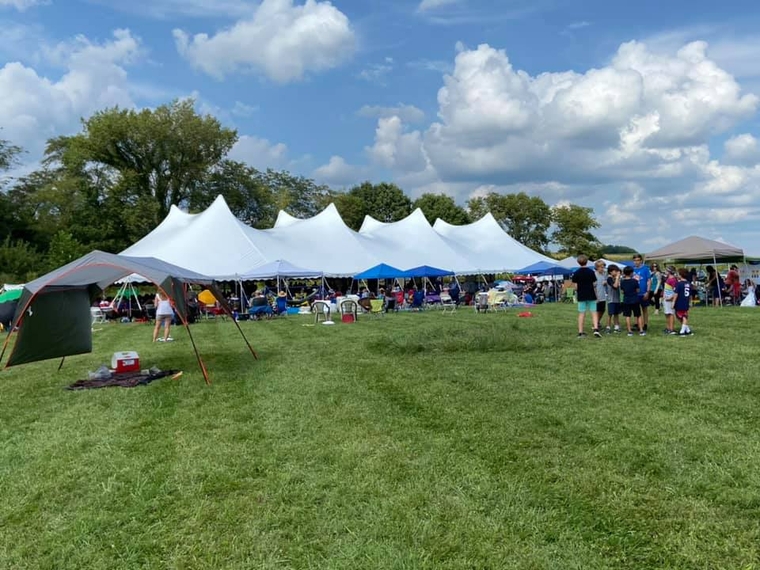
I made it out to the Festival on Saturday and Sunday to catch the musical performances from mid-afternoon through the evening each day. As I entered the performance tent on Saturday afternoon, the event’s designated MC, Peter Mulvey was performing a set of his own material. A very likable and literate speaker and songwriter, Mulvey celebrated the importance of poetry at the inaugurals of recent American Presidents and the world we were hoping to return to post-pandemic titled “Early Summer (of ’21), then did a very funny song about the recent launch of Amazon billionaire Jeffry Bezos with the catchy title, “Assholes In Space.” He did a poetic reading of his picture book, “Vlad the Astrophysicist,” which essentially suggests that life, as we know it, will one day end, and closed his set with his newest song, with echoes of a folk classic, “Shenandoah.”
With Mulvey off to the merch tent to supervise sales of his CDs (and to make sure no children bought his picture book without adult supervision,) Joe Henry stepped up to introduce Alison Moorer. He did so by quoting and name dropping famed-producer T Bone Burnett, who had once said that “the mark of a great artist is generosity,” and said as much for the singer/songwriter who played “Wish I,” “Alabama Song” and “A Soft Place to Fall,” before diving into material from her latest works, Blood, the title of her memoir released in ’19, and related songs that came out in ’20. After playing “Bad Weather,” she introduced a song written for her mother, “The Rock and the Hill,” which included one couplet from the Gospel hymn, “Just a Closer Walk with Thee.” Still, on that very personal, somewhat tragic theme, Moorer sang “All I Wanted (Thanks Anyway),” one about untying “The Ties That Bind,” and the album’s title track, revealing an especially strong, and lovely voice throughout. Saying that it was strange living in a world without a living Everly Brother, a nod to the recent death of Don Everly, she mentioned how they had influenced the way she sang harmonies with her sister, the recording artist Shelby Lynne. Referencing her own recovery from trauma, Moorer described hearing the word “heal” as she was putting the finishing touches on her last album and realizing she had one more song to write. Overwhelmed by the thought, she reached out to Mary Gauthier who co-wrote it with her. Moorer wasn’t the last person to thank Karin and Linford for inviting them to play this festival, describing how good it felt to be embraced by such a warm, supportive, and appreciative audience. She was joined by Gauthier’s background vocalist and lead guitar player Jamie Harris on harmony as she sang “Heal,” with the lyrics “Help me lay my weapons down/Help me give the love I feel/Help me hold myself with kindness/Help me heal… show me what is real/Lord, help me heal.”
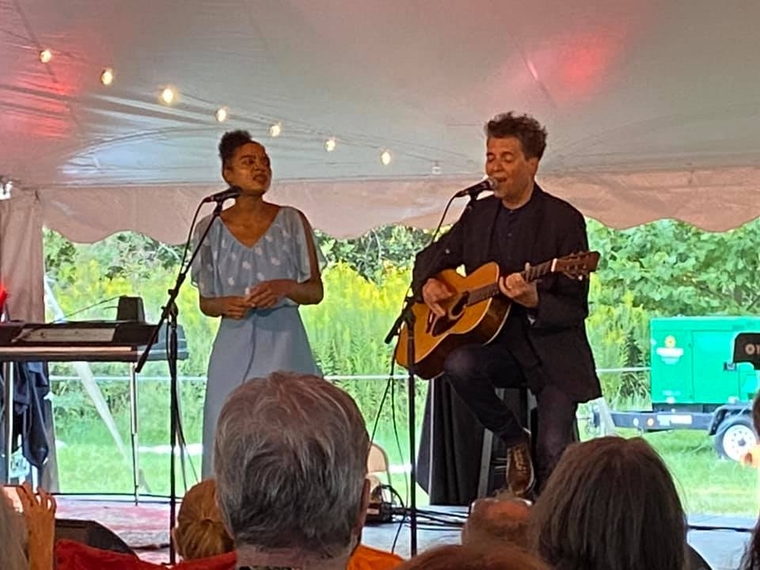
One of the reasons I requested this gig was my desire to see Mary Gauthier and Joe Henry. Gauthier also has a recently published memoir, Saved by a Song; The Art and Healing Power of Songwriting,” which had gotten a lot of positive press, along with her truly life-saving work among veterans, notably referenced in the lead song from her 2018 release, Rifles & Rosary Beads, “Soldiering On,” with the lyric so many veterans of America’s foreign wars report, that “what saves you in the battle/can kill you at home.” Supported by guitarist/vocalist Jamie Harris, Gauthier dove further into her impressive catalog, acknowledging the loss and grief of our time, with her lower, rawer voice balanced by the sweet, higher harmony of Harris. They closed the set with a song of John Prine’s, commenting on his passing as well as that of Nancy Griffith, as they played the intro of “Speed of the Sound of Loneliness.”
The Saturday night headliner, and likely the biggest draw of the entire weekend, was Over the Rhine’s performance with their backing players, The Band of Sweethearts, which is currently Jennifer Condos on bass, Jay Bellerose on drums, and Eric Heywood, who’s played pedal steel with the likes of Son Volt, The Jayhawks, and of course Joe Henry. I saw the songwriting duo with just Heywood supporting them, pre-pandemic in 2019, fresh from the release of their last album, Love & Revelation. While that was a completely lovely night, Linford & Karin really take it up a notch when they have that rhythm section of Condos and Bellerose kicking things into a higher gear. So, Saturday night’s performance felt familiar and yet special all the same.
They opened with the duo singing in harmony both playing guitars, a celebration of this piece of real estate that was making this gathering possible, “Meet Me at the Edge of the World,” which they followed with “Called Home,” with Karin stomping her foot a bit harder than usual due to the bells on her ankle. Those are the two opening tracks of their 2013 release, which draws its title from that first song. Linford waxed philosophical as he is often wont to do, recalling the comments others have shared with him about the festival; in fact, a member of The Steel Wheels, who had played earlier in the day, said the gathering made the place sacred ground, triggering the third song from the same album, “Sacred Ground.” Karin responded to the applause, saying “We’ve been really lonely out here, we’ve really missed you,” more or less defining the compact they have made with their fans.
Linford moved to the piano for “Born,” one of the most beloved of Over the Rhine’s growing repertoire of encouraging songs, with Karin holding the final lyric of the line at the end of the song, “I’m gonna learn to love without fear,” stretching the word “fear” out longer than I’ve ever heard her do that in a performance. The sexy tango-based love song, “Trouble” was up next, Linford’s robust piano—maybe it was more of a bossa nova, but had a strong, exotic vibe—and the sultry bass and drums added nicely to the mood of seduction. Heywood stepped out for the pop-leaning title track from the newest album, Love & Revelation, a phrase they said Henry uses to sign off on his emails that they used with permission. Karen started “Broken Angels” from that same album, finger-picking the guitar and singing solo for the first verse, the band joining in, the pedal steel crying along with the song’s lyric.
By way of introducing the next song, Linford announced that the couple had their 25th anniversary approaching later in the fall, and saying they were looking forward to traveling back to New Mexico where they’ve led yearly songwriting workshops before other points in Southern California, before Karin chided him for over-sharing, as he seemed to be inviting the entire crowd to join them on their vacation. She added those visits to New Mexico had encouraged her writing “Los Lunas,” which begins with the words, “I cried all the way from Los Lunas to Sante Fe.” Linford returned to play guitar and sing harmony on “Let You Down,” saying of the song, “People are going through hard stuff right now. Some things aren’t fixed, they are carried, but I do like to walk alongside and share the view when I can.”
At this point, Karin introduced “Hey You Heron,” a new song, acknowledging her strong fascination with herons, which included a jazzy solo from Linford on electric piano followed by more of the same from Heywood on pedal steel. By way of introducing the somewhat apocalyptic tone of “Latter Days,” from the beloved Good Dog Bad Dog sessions, Karin asked “What could freak us out now?”, an acknowledgment of the stressful two years we’ve all been through. Then, in response, she delivered a cover of the standard, “What a Wonderful World,” inviting folks to sing along. There was a hint of soulfulness in her voice at times suggesting the famous rendering of this classic by Louis Armstrong. “Laugh of Recognition” came next, getting the full-band treatment, with its consistent call out, “C’mon boys,” which led into the title track of their latest, “Love & Reconciliation,” for which Heywood stepped away and the song leaned firmly in more of a pop direction with a fun, brief drum break from Bellerose, the quick splash of melodic pop-rock almost felt too brief. And, then, inevitably, Over the Rhine closed the set with the barroom piano feel of “All My Favorite People,” which has become a signature song, not just for the band but for the entire festival.
Of course, an encore was inevitable, and the Sweethearts returned with a rocker, “Rave On,” with its familiar encouragement to “never give up, never say die,” and the band played out some, a bit more aggressive and spirited. Then, Karin gave a shout-out to the brewer (hello Wild Heaven) who has sold beer at the festival over its five-year span, who this year had arrived with a special Wildflower Bouquet IPA, which was a perfect lead into their song “Wildflower Bouquet.” Then to calm folks down, and wrap up the evening, they offered the slow, soft assuring ballad, “Wait.”
On Sunday afternoon, we were treated to what the schedule described as “The Wild Edges Bramble Ramble,” a great exaggerated name for a songwriter’s circle in an attempt to recreate the vibe of Nashville’s Bluebird Café. Peter Mulvey delivered up a song written for a little girl in the car near his while filling up at a gas station, offering a somewhat comical approach to the rather dystopian world her generation was inheriting from us older folk. Not to be outdone Anna Tivel, who had played a full set earlier in the afternoon, offered up a fun song inspired by her attempt to go out on a date via an online service, and the foibles and missteps of her fellow humans in a song that declared that “we’re all crazy all the time.” Mary Gauthier laughed out loud wondering how she could follow that, but then offered up a song of resiliency rooted in relationship, “Thank God For You,” with Jamie Harris again chiming in on harmonies and playing a sweet, simple acoustic guitar solo that followed the melody. Harris then took a turn, offering up her own song, singing “Love Is Gonna Come Again.” Next up, was Scott Mulvahill, performing a song backed only by his upright bass. By way of introduction, he acknowledged that the song was the only Gospel song he’d ever written and said, “the danger is that half of the audience will expect some kind of dogmatic certainty, but I see it more as an open hand than a pointed finger.” While unusual to hear a bass played as solo accompaniment for a song, Mulvahill played effectively, giving soulful vocal delivery to his song, “The Lord Is Coming.” Then, wrapping up the segment, Karin supported by Linford on piano, led the entire crowd in a group sing of “What a Wonderful World.”
Besides Over the Rhine, I believe Birds of Chicago is the only act to play at all five of the Nowhere Else Fests, but this year they were represented on the schedule by the band’s female vocalist, Allison Russell. Russell is also part of an award-winning collaboration with Rhiannon Giddens, Amythyst Kiah, and Leyla McCalla that performs as Our Native Daughters, committed to reimagining the banjo and other traditional instruments that were historically associated with African American and First Nations peoples. The heart and focus of her solo performance was bringing her recent solo album, Outside Child, to life on the festival stage supported by a guitarist, and two cello players who sang harmony vocals throughout the set. The performance was delivered in narrative form, with Russell offering spoken word storytelling with poetic, profound language, and then singing her genre-bending songs as well as adding both banjo and clarinet liberally throughout the set.
Biographical in nature, Russell’s personal story resonates alongside the memoirist songwriting of both Moorer and Gauthier from the day before, although her persona is utterly individual and unique. The tale she tells is deeply personal, describing her own journey to become, what CMT News described as “A biracial, Canadian-born, queer woman – and mother – who was adopted and is a teenage sexual trauma survivor,” with every part of that identity pouring through the songs from her solo album. “We are not what we have lost/We are more than the sum of our scars,” she said more than once in her hour-long performance, describing her relationship to the long historical journey of African peoples arrival on this content first as slaves, surviving oppression, and as a young vulnerable female sexual abuse within her adopted family, running away only to rebuild her life thanks to the “music that saved me.” While there are several very dark chapters in the story she brings to life in her performance, the overall feeling is one of what she calls “survivors joy,” and a commitment to lift up others who may not have been as fortunate as she has been. Russell is now married to JT Nero, her musical partner in Birds of Chicago joined her for one song late in the set. Before they performer her song, an anthem of survival, she warned that there was one word at the beginning of the song that no child should ever repeat, especially in school or at a friends house, but promised they’d only sing it once even though it’s the title of the song, “Joyful Motherf***ers,” which goes on to celebrate “the fearless lovers, the rainbow shooters/the wild accepters, the hopeful sinners/the gentle teachers, the true forgivers,” which is a pretty inclusive group.
Afternoon sets had not really gotten an encore, but Russell’s heart-felt performance and generous honesty and empathy was rewarded by an audience who demanded she return to the stage. Surprised by the warmth of the response, Russell referred often to the love and acceptance she’d experienced from Over the Rhine and the fans each year at the festival, which she described as an expression of “The Beloved Community.” In response, she offered a song from her work with Our Native Daughters, “You Are Not Alone,” an anthem of that sense of camaraderie and support.
Joe Henry opened his solo set singing the mournful truth, that “Death is sure, but death is slow. Hallelu! Hallelu!” The fact that he broke off singing to cough elicited the comment, “I’m not kidding,” but for the cancer survivor and poet there are always words to help us find our way through life’s darkest challenges. A case in point was the next song, “Sparrow,” from his 2014 album, Invisible Hour, with the telling lyric, “our very blood/taste like honey now.” He introduced the next song as “a renegade’s tale of lost love or how love found or lost shapes a life,” which led to “Eyes Out for You.” Then turning to his most recent album, he played the title track, “The Gospel According to Water,” his intricate finger-picked acoustic guitar matching the intimate feel of that entire recording. His unique playing mixed with his poetic sensibility came to the fore on the title track of his 1996 release, “Trampoline,” with its honest appraisal of gravity in the line, “The floor will have its way it seems,” and his bold desire to counter it: “This time I’m not coming down.”
Henry tuned his guitar between each song, and like many performers had at least one joke to distract us while he coaxed the strings back into harmony; he said, “I can always tell when it’s in tune because I can hear ‘send in the clowns.’” Henry next treated us to several new songs, the first titled “Yearling,” capturing the common ironic thread in his work, praying “Angel of our mercy now/Pull me close to thee/Keep me safe from everything/That tries to set me free.” He suggested that “Oh Beloved,” started out “speaking to God in an intimate way, but by the end, I decided to dedicate it to Little Richard.” The third new track Henry said came to him when he and his wife were moving from California to Maine and driving through Nebraska, and he had a moment of clarity. It was named for “Karen Dalton,” who he described as “a tragic folk hero.” Dalton had been active in the folk music revival in NYC when Dylan, Tim Hardin, and Fred Neil were playing coffeehouses in Greenwich Village; she released two albums and was plagued by addiction throughout her life. In the song, Henry sings, “We talk of love like we speak of God.” One final new song, again marked by Henry’s unique guitar stylings and poetic sensibilities, “Open Hands,” suggesting a way for each of us “to carry on from here.”
While Henry seems to open his psyche for observation in the lyrics of his songs, he seems hesitant to talk too much about his personal life, and while it has been widely discussed in the press, he noted that “I don’t want to speak about cancer, but I do want to talk about fear. I was lost in that regard,” Henry said about when he received his diagnosis of stage 4 prostate cancer, “because I could not imagine music. It was poetry that saved me. It was a gift to be able to bring myself there and have it open up for me.”
Known to the audience as the producer of several albums by Over the Rhine, as well as Birds of Chicago and others, Henry suggested “there’s an old show biz adage: ‘Never follow Allison Russell on stage.’ But there’s an older saying, to ‘Always follow the light,’” and then he invited the singer to join him on stage to sing harmonies. Henry then turned to songs from his much-praised most recent album, The Gospel According to Water. The first, “In Time for Tomorrow,” for which he suggested the subtitle “Or Funeral for Sorrow,” then recognizing the grim sound of that, added, “everybody dance, now,” before digging into the song. When starting cancer treatment, Henry had said he turned to poetry because music was beyond his reach, but when songs started coming they came, he said “in a flash flood,” so he was racing to get them down and record them before they would be lost to him. Overwhelmed by the thought of more songs coming before he could deal with what he already had, he noticed his wife working on a sculpture and asked what she planned to name it. She said, “The Fact of Love,” and Henry said, “I went, well, s–t,” knowing there was at least one more song to write, he then played the song by that name. Henry dug back to his 2011 album, Reverie, for the song “Odetta,” with Russell singing harmony on the choruses, and then closed the set with one final song from his latest, “Orson Wells,” admitting at the outset that “I’m not completely sure this song is actually about Orson Wells.”
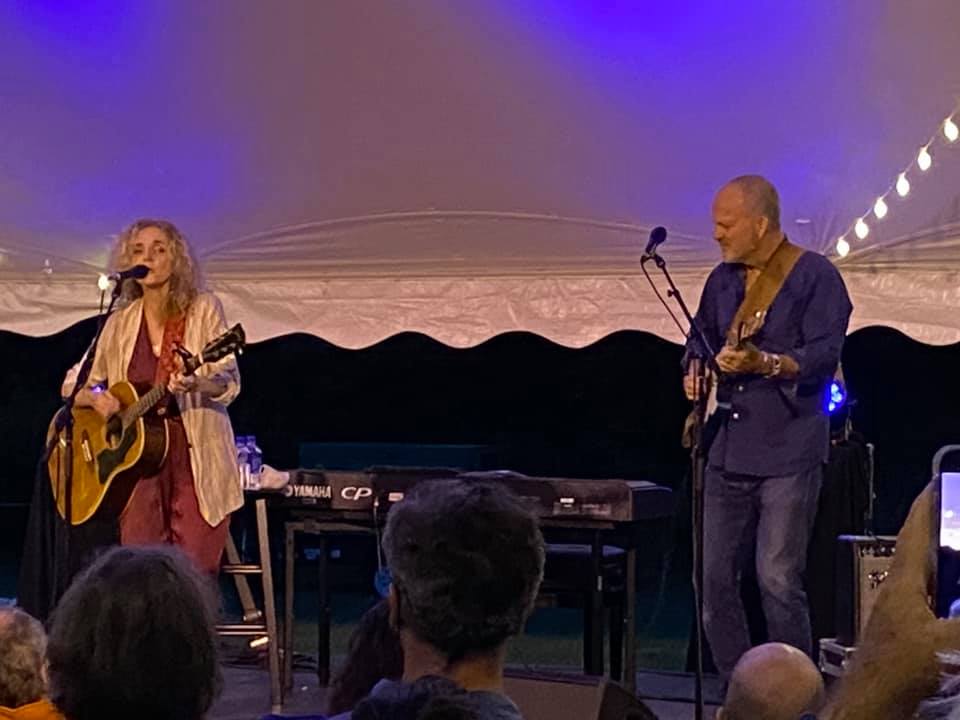
Patty Griffin closed out the evening and the festival, supported on guitar and backing vocals by famed session musician, David Pulkingham. Pulkingham comes from the Austin scene, and had played alongside Alejandro Escovedo for a decade before doing shows with Robert Plant and Griffin, and then leading her band on her 2013 American Kid tour supporting that album, and playing with her off and on ever since. She opened with “Truth #2,” with its memorable line, “Swing me way down south/Sing me something brave from your mouth.” Griffin played aggressively, her rhythm guitar cutting steadily through the night, Pulkingham adding a lovely acoustic solo on the opening song, then picking up an electric for “Stay On the Ride,” which leaned toward the rootsy, bluesy side of Americana. Griffin told how she was born to Irish immigrants, speaking of her father who served in the military then used the GI Bill to go to school and became a teacher, met her mother and brought her into the world. Having lost her Dad, she’s come to realize “you can’t get the whole person down in any one song,” by way of introducing “Faithful Son,” from her American Kid release.
Her next song held the promise that “Just before the flood comes… Love throws you a line,” which led into “Standing,” another from her 2004 album, Impossible Dream, and then also from that record, “Cold As It Gets.” Acknowledging her Irish lineage again, she said those American immigrants, “most of them got a pretty rough start.” Then turning to her most recent self-titled album from 2019, she sang “Boys From Tralee,” pounding out the beat with her right boot while playing the rhythm guitar.
As Pulkingham stepped away for a moment, Griffin said, “I’m going to step into some deep waters here and play some things I haven’t played in a while,” to some supportive applause from the crowd that remained. She went all the way back to ’96 for “Sweet Lorraine, “who came from a long line of drinkers and dreamers…” whose “Daddy called her a slut and a whore/On the night before her wedding day…” admitting “It gets harder and harder/Lorraine, to believe in magic/When what came before you/Is so very tragic.” She had warned that it had a “little of that Irish tragedy.” Then she served up “Wild Old Dog,” which says God is like a dog someone left by the side of the highway, and “He don’t belong to no one now.”
“It’s not often you get to sing a song in the state it’s written about,” Griffin said, by way of introducing “Ohio,” which she said was “inspired by Toni Morrison, by a few of her stories about the underground railroad and this part of the country near the Ohio River. Pulkingham played slide guitar to accentuate the earthy blues, and added harmony vocals, Griffin again clicking her boot heels to the beat, while Pulkingham took a solo. Griffin then set her instrument aside again, and sang “Heavenly Day,” with Pulkingham’s accompaniment. Next, Griffin picked up one of her lovely acoustic guitars to play “No Bad News,” a song dating back to ’07 which she’s admitted was written about a political leader she didn’t agree with, and by now it likely has numerous potential targets.
Then Pulkingham moved to an electric piano to support Griffin on the last song of her set, singing the reflective “Luminous Places,” a funereal hymn of what is lost and yet remains found, dedicated to the memory of her passed brother-in-law. The crowd showed signs of weariness, after two long days, yet were unwilling to let go of Griffin and the last remaining moments of the Nowhere Else Festival, and stood to bring her back for an encore. Again with the piano behind her, she maintained that quiet, reverential mood, with “Going Up to the Mountain (MLK Song),” with its pertinent reference to the “peaceful valley.”
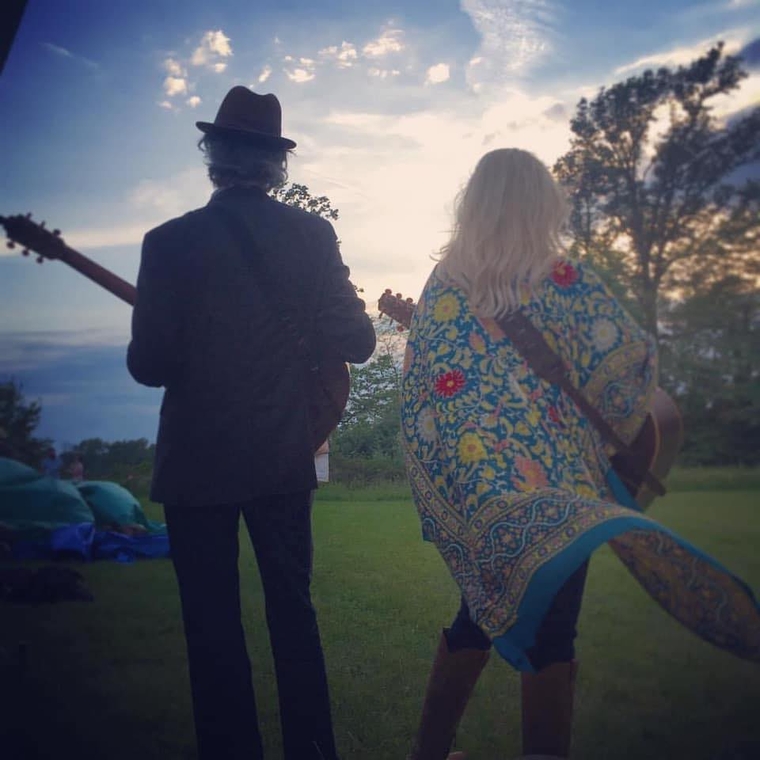
Karin and Linford came out to ask us to leave our folding chairs in a pile for the crew who would arrive in the morning to collect them. Then with the promise that the festival would return next year, likely back on Memorial Weekend, sent us off with a blessing. I think we do need these times when music can speak for us, and to us, and we are reminded of our common humanity, our belonging to and in and with a community of folk who value peace and justice, love and harmony, laughter, and goodwill. Not a bad way to spend a Labor Day Weekend.
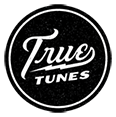
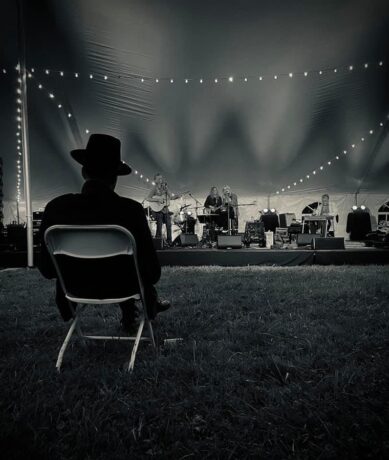
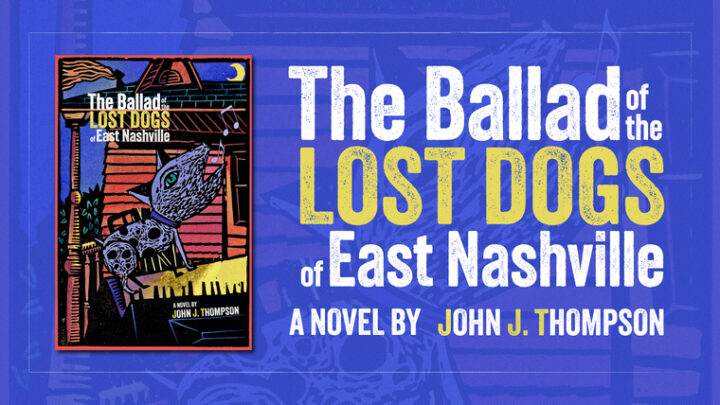
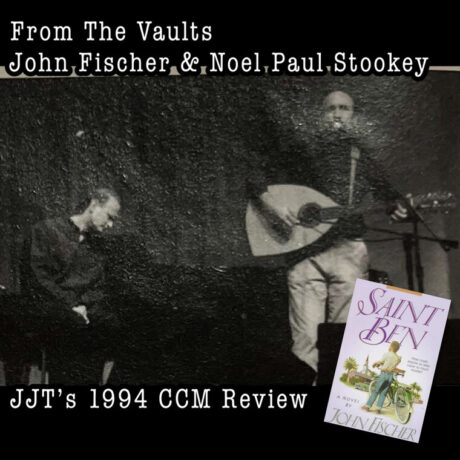
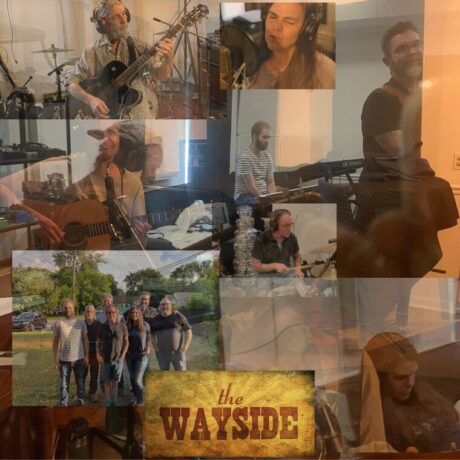
September 15, 2021 @ 2:40 PM
Great review of a fantastic weekend! Enjoyed all of the artists. I found the Patty Griffin performance a little “rough”, but was blown away by Allison Russell and Mary Gauthier and I thoroughly enjoyed Peter Mulvey, The Steel Wheels and Allison Moorer. Been a fan of OTR for over 25 years and these musical gatherings are special times.